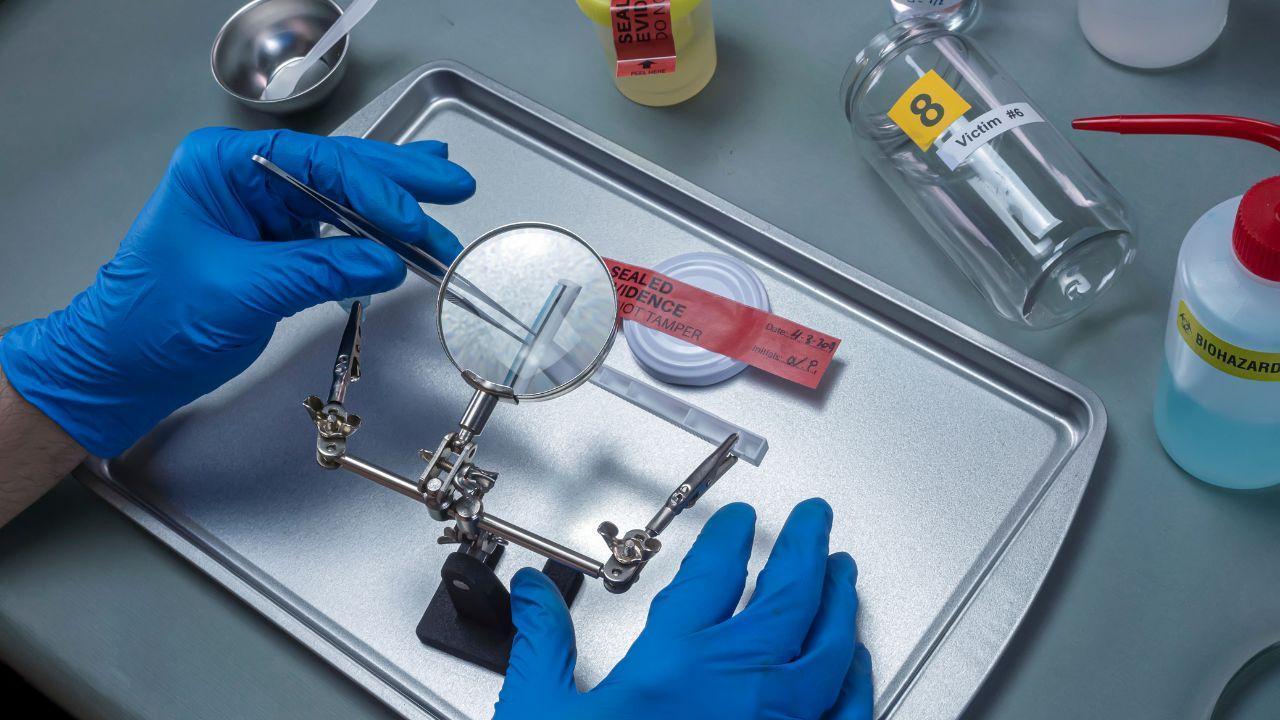



Study Forensic Science Abroad and Build a Global Career
Have you ever watched a crime show and wondered how experts solve mysteries using science? If yes, then forensic science might be the perfect course for you. Today, more students are choosing to study this subject in other countries to learn from the best teachers, use modern labs, and explore real cases. In this article, we will talk about Forensic Science Courses Abroad: Investigate with Science, and how they can help you build a strong and exciting career.
What Is Forensic Science?
Forensic science is the study of using science to solve crimes. It helps police and courts understand what happened during a crime. Experts look at things like fingerprints, blood, hair, digital data, and even bones to find the truth. They work closely with law enforcement to give clear answers using proof and facts.
This field is a mix of many subjects such as biology, chemistry, physics, and even computer science. People who love science and solving puzzles will enjoy this course.
Why Choose Forensic Science Courses Abroad?
Studying forensic science in another country gives you many advantages. First, you get to learn from top teachers who have years of experience. Many universities also have high-tech labs and equipment where you can practice real case studies.
Second, many international colleges work closely with police departments or private crime labs. This gives you a chance to do internships and gain hands-on experience, which is very helpful when applying for a job later.
Third, when you study abroad, you also grow as a person. You learn to live on your own, meet students from different countries, and understand new cultures. This helps you become more confident and ready for your career.
What You Will Study in the Course
In a forensic science course, you will study a mix of theory and practical topics. The subjects you may learn include crime scene investigation, DNA testing, toxicology, digital forensics, forensic psychology, and law. You will also learn how to use lab tools and write detailed reports.
Most universities also include real-life training or lab work as part of the course. This helps students learn how to work in real crime scenes or labs.
Bachelor’s courses usually take 3–4 years, while master’s degrees take 1–2 years, depending on the country.
Best Countries to Study Forensic Science
Many countries offer top-quality forensic science courses. The United Kingdom is one of the most popular places to study this subject. Universities like the University of Leicester and the University of Strathclyde are known for their strong forensic science programs and close ties with police and legal bodies.
The United States is another great choice. It has many top universities offering advanced courses in forensic science. Students also get chances to work in crime labs or research projects during their studies.
Australia is known for its modern labs and friendly learning environment. Universities in Australia offer bachelor’s and master’s degrees in forensic science, and many include practical training.
Canada also offers good programs in forensic science. The country is safe, the teaching is excellent, and many students find job opportunities after graduation.
Germany and the Netherlands are also becoming popular for science and research courses, and they offer some forensic science programs in English.
Job Opportunities After the Course
After finishing your studies, many job options are available. You can work as a crime scene investigator, lab technician, forensic analyst, or even in cybercrime and digital forensics. Some students also work with law firms, government agencies, or private detective agencies.
If you want to study more, you can do a master’s or PhD in a special area like forensic psychology, toxicology, or digital crime. A career in forensic science is not only exciting but also makes a real difference in society.
What You Need to Apply
To apply for Forensic Science Courses Abroad: Investigate with Science, you need good marks in science subjects in school. English test scores like IELTS or TOEFL are usually required. You may also need to send a personal essay, letters from your teachers, and sometimes a resume.
Each university has its own rules, so it is always best to check the official website or talk to an advisor before applying.
Disclaimer:
The information in this article is for general awareness only. Students are advised to verify course details, admission requirements, and eligibility with official university or government sources before making any decisions.
#trending #latest #Myedugoal #ForensicScienceAbroad #StudyForensics #GlobalEducation #ScienceCoursesAbroad #StudyAbroad2025 #ForensicCareers #CrimeSceneScience #InternationalStudents #ForensicPrograms

University Internships That Help You Get a Job After Graduation... Read More.

Is It Smarter to Start at a Community College... Read More.
 Fake posts hit Czech PM Fiala's X
Fake posts hit Czech PM Fiala's X
Fake posts disrupt Czech PM Fiala's X account security
 Switzerland Tightens Export Rules
Switzerland Tightens Export Rules
Switzerland expands export controls on dual-use goods
 Google unveils Ironwood AI chip
Google unveils Ironwood AI chip
Google introduces Ironwood chip to accelerate AI tasks & apps
 TSMC Q1 revenue up 42%
TSMC Q1 revenue up 42%
TSMC sees 42% revenue surge in Q1, surpassing forecasts
 Amazon CEO Outlines AI Vision
Amazon CEO Outlines AI Vision
Amazon CEO reveals AI investment plans in new letter
 Osaka Hosts World Expo 2025
Osaka Hosts World Expo 2025
Japan blends tech and culture at Osaka Expo 2025 launch
 A16z Plans Big Bet on AI Startup
A16z Plans Big Bet on AI Startup
A16z may lead huge round in ex-OpenAI CTO’s new AI firm.
© MyEduGoal. All Rights Reserved. Design by markaziasolutions.com